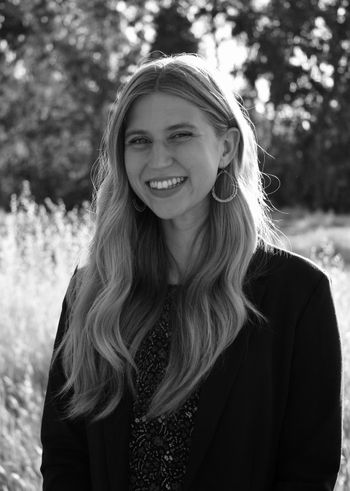Mental wellness program at UW will now tackle 'racism,' 'microagressions'
UW's mental health and wellness program will now "interrupt racism."
Some of the practices include coaching students to “let go of the 'right way' to collaborate or complete work.”
The University of Washington is expanding the scope of its mental health and wellness program to “interrupt racism” and “combat microaggressions,” a concept that UW defines in part as “assuming that others are like you”.
UW’s mental health program Resilience Lab has existed since 2015 to help students “cope with stressors, including failure” according to its newsletter.
The lab has seen change since Director Megan Kennedy took over in 2019, as she slowly expanded the Resilience Lab’s purposes and goals. Kennedy’s latest change was partnering with the school’s Center for Communication, Difference, and Equity, to launch a new speaking and training series Resistance through Resilience, for faculty and students alike.
Kennedy stated that mental health and racism go hand in hand, saying “We’re really committed to addressing the systems of oppression and racism that exist, and to think critically about why we have a system that promotes so much stress,”.
One way to do that according to UW is to “combat microaggressions”. Microaggressions according to the school’s website, are “Brief and commonplace daily verbal, behavioral and environmental indignities, whether intentional or unintentional, that communicate hostile, derogatory, or negative racial slights and insults to the target person or group”.
[RELATED: U of Kansas study admits microaggression training doesn’t work]
The school further clarifies that “microaggressions can target any marginalized group identity, such as race, socioeconomic class, gender, sexuality, nationality, citizenship, ability, etc.” The page explains that such transgressions are not related to intent, stating “we are all socialized to commit microaggressions, even if we have good intentions”.
UW lays out some common types of microaggressions such as “denial of racial reality” which is “dismissing claims that race was relevant to understanding a student’s experience” and “ assuming that others are like you”. Other forms include “guarding belongings more carefully when around certain groups or expressing fear of certain groups”, and “assuming people are foreign or don’t speak English well because of their appearance” This could be something like “questioning someone’s membership status such as you don’t look disabled” or you don’t seem that gay to me or if you were Jewish, wouldn’t you do x?”
UW states that if and when microaggressions occur to avoid “Focusing on (or allowing a focus on) debates about: The intent of the micro-aggressor” Also the school and students should not look at “What each person said or did” or “who’s right or wrong”. Instead, they should “Explain why the incident is problematic. Support students in critical reflection on the situation” and “acknowledge the emotions in the room, both visible and invisible”.
To help with combating microaggressions and other forms of racism, Kennedy’s group has released a guidebook to help faculty navigate mental health and racism.
“What we’re doing is creating both a venue and a map — if you will — toward healing and compassion in our community,” Ed Taylor, Vice Provost and Dean of Undergraduate Academic Affairs stated.
The new guidebook that Resilience Lab released focuses on how faculty can learn how to “support the whole student” through their classrooms and practices. The guidebook addresses microaggression stating that “though often committed unknowingly, greatly impacts classroom climate” and lays out practices for instructors to combat microaggression. Some of these practices include “Coach students to resist making assumptions about a group member’s character based on their work output” and to “let go of the ‘right way’ to collaborate or complete work.”
The guidebook also asks open ended questions like “How will you build and sustain a practice where you examine equity and systemic oppression, including how they are present in you”. It includes various quotes, like from UW President Ana Mari Cauce saying that “Stereotypes and bias are in the air we breathe. They are part of our societal fabric”. It actively encourages the faculty to “focus on process and not just the outcome of a finished assignment or project.”
Ralina Joseph, a professor of communications as well as the associate dean for equity and justice and student affairs, is leading the partnership between the Resilience Lab and the Center for Communication, Difference and Equity. Using $15,000 from The Mind & Life Institute, her group will work with Kennedy on the projects mentioned and to “address racial exhaustion, nourish each other and confront everyday oppression.”
Joseph believes that “People also needed to attend to the health of themselves and to their communities while still continuing to do the vitally important daily work of protesting racism,”.
Both Kennedy and Joseph have not yet responded to Campus Reform requests for comment.

